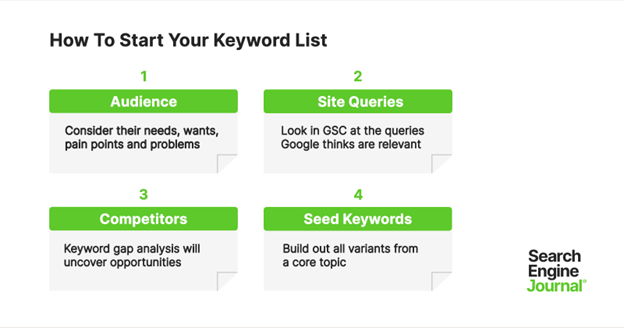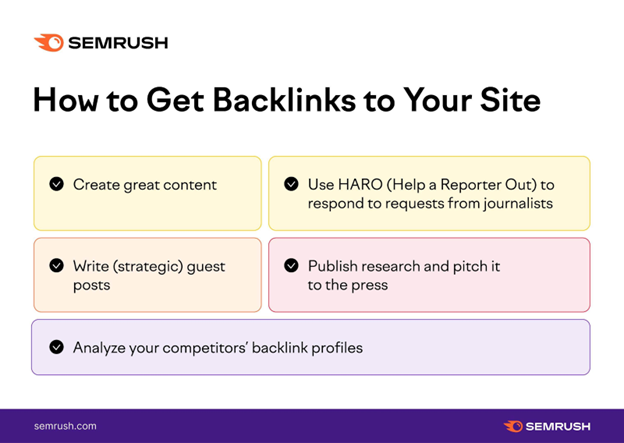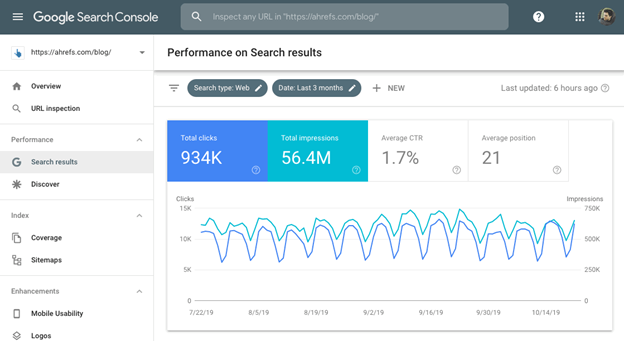The article goes into detail about the idea of topical authority and what it means for search engine optimization (SEO). It says that a website's or content's topical authority is how knowledgeable and trustworthy it is about a certain subject or topic. It stresses how important this is for ranking higher in search engine results pages (SERPs), getting free traffic, and making sales. Among the useful tips in the article for gaining and maintaining topical authority are doing in-depth keyword research, producing high-quality content, being consistent with content production, building a strong backlink profile, using social media, optimizing for mobile, keeping an eye on performance, and keeping up with SEO trends. Act and get professional help from DO Communication to use these strategies correctly and achieve success and visibility online.
However, it's essential to remain grounded in reality. Even while pursuing topical authority, you should still anticipate the necessity of link-building and various other SEO activities. Topical authority isn't a magic solution, but it's an investment well worth your time.
In this guide, we will delve into the intricacies of topical authority, offering a comprehensive understanding and practical strategies for building it on your websites. Let’s get started!
Table of Contents |

What is Topical Authority?
Topical authority is important because it establishes your website as a trusted source of information within a specific niche. Search engines reward sites with strong topical authority by ranking them higher in search results, leading to increased organic traffic. It also builds credibility with users, encouraging engagement, repeat visits, and conversions, all of which are crucial for long-term success.
What does authority mean in SEO?
In SEO, authority refers to the credibility and trustworthiness of a website or content in a specific field or topic. It is a measure of how reliable and valuable a source is in providing information on a particular subject.
Why is Topical Authority Important?
Topical authority helps search engines deliver the most relevant and reliable content to users. When your website establishes topical authority, it's more likely to rank higher in search engine results pages (SERPs), attract more organic traffic, and ultimately, drive more conversions.
How Does Topical Authority Work?
Topical authority refers to a website's perceived expertise and credibility on a specific subject or topic in the eyes of search engines. It is built by consistently producing high-quality, in-depth content related to a particular niche. The more comprehensive and relevant the content, the more search engines view the site as an authoritative source. Building topical authority in SEO involves covering all subtopics, answering common questions, and linking internally to related content. As a result, websites with strong topical authority tend to rank higher in search results, attract more organic traffic, and build trust with both users and search engines.
How to Establish and Improve Topical Authority
1. Conduct Comprehensive Keyword Research

Keyword research is the foundation of any successful SEO strategy. Start by identifying the primary keywords and phrases related to your niche or industry. A study from SEJstates that 93% of online experiences begin with a search engine. So, utilize tools like Google Keyword Planner, SEMrush, or Ahrefs to discover relevant keywords with high search volumes and low competition.
2. Create High-Quality Content
Once you've identified your target keywords, it's time to create high-quality content that provides value to your audience. High-quality content not only attracts readers but also earns backlinks from authoritative websites, a crucial factor in establishing topical authority. Best Practices for high-quality content include:
- Thorough research of the topic
- In-depth, informative articles
- Proper formatting
- Visuals
- Optimizing content for readability and mobile devices
3. Consistency Is Key
To build topical authority, it's essential to consistently produce content on your chosen topic. Create a content calendar to ensure a regular publishing schedule. Regular updates show search engines that you are dedicated to providing the most up-to-date and relevant information in your niche. And websites with blog content have 434% more indexed pages on average.
4. Establish Backlinks

Backlinks remain a significant ranking factor in SEO. Building a strong backlink profile from authoritative websites within your niche can boost your topical authority. Reach out to other content creators, industry experts, and influencers for collaboration opportunities.
5. Leverage Social Media
Social media platforms can be powerful tools for promoting your content and building your brand's authority. Share your articles, engage with your audience, and participate in relevant discussions within your niche. Social media sharing can improvesearch engine rankings and increase organic visibility.
6. Optimize for Mobile
With the increasing use of smartphones for online searches, optimizing your website for mobile is essential. Google's mobile-first indexing means that mobile-friendly websites are prioritized in search results. Over 50% of global internet traffic[ss1] comes from mobile devices. So, a seamless mobile experience is crucial for improving your topical authority.
7. Monitor and Analyze Performance

Regularly monitor your website's performance using analytics tools like Google Analytics and Google Search Console. Track your rankings for target keywords, user engagement metrics, and backlink growth. Use this data to refine your SEO strategy and identify areas for improvement.
8. Stay Informed and Adapt
The world of SEO is constantly evolving, with search engines frequently updating their algorithms. Stay informed about the latest SEO trends and algorithm changes. Adapt your strategies accordingly to maintain and enhance your topical authority.
Also Read: Mastering Domain Authority: Boosting Your Website's Score
How to measure topical authority?
Measuring topical authority in SEO involves evaluating various metrics that reflect your website's expertise and relevance on a specific subject. Key indicators include:
- Content Depth: Assess the quality, comprehensiveness, and relevance of your content on a particular topic.
- Keyword Rankings: Monitor how well your pages rank for target keywords within the niche.
- Backlink Profile: Evaluate the number and quality of external links pointing to your content, indicating trust from other authoritative sites.
- Traffic Growth: Track organic traffic related to your niche.
- User Engagement: Analyze metrics like time on page, bounce rate, and click-through rate, which reflect user satisfaction.
Conclusion
In the competitive landscape of SEO, establishing and maintaining topical authority is paramount for success. By following these best practices and staying informed about industry developments, you can position your website as a trusted source of information in your niche, ultimately driving more organic traffic and achieving your online goals. And remember that SEO is a long-term game, and it requires dedication and ongoing effort.
Ready to boost your website's topical authority? So, take the first step today, and start building your topical authority with Do Communication. Connect with us to discuss how our SEO experts can help you implement these strategies and achieve the online visibility and success you deserve. Contact us now!
Frequently Asked Question
Q1. How do you build topical authority in SEO?
- Conduct thorough keyword research within your niche.
- Create high-quality, comprehensive content on specific topics.
- Consistently produce and update content related to your niche.
- Build a strong backlink profile with authoritative sources.
- Engage with your audience on social media and industry forums.
Q2. What does authority mean in SEO?
In SEO, authority refers to the credibility and trustworthiness of a website or content in a specific field or topic. It is a measure of how reliable and valuable a source is in providing information on a particular subject.
Q3. What are the benefits of topical authority?
- Higher search engine rankings for relevant keywords.
- Increased organic traffic and visibility.
- Enhanced trust and credibility with your target audience.
- Improved chances of attracting quality backlinks.
- Better user engagement and conversions.
Q4. How does Google determine authority?
The quality and quantity of backlinks to a website.
The relevance and depth of content on a specific topic.
User engagement metrics such as click-through rates and time on page.
Social signals and mentions on social media platforms.
Consistency and freshness of content updates.
Q5. Is topical authority a ranking factor?
Yes, topical authority is a crucial ranking factor in SEO. Search engines like Google aim to deliver the most relevant and authoritative content to users. Websites that establish themselves as authorities in their respective niches are more likely to rank higher in search engine results pages (SERPs).


